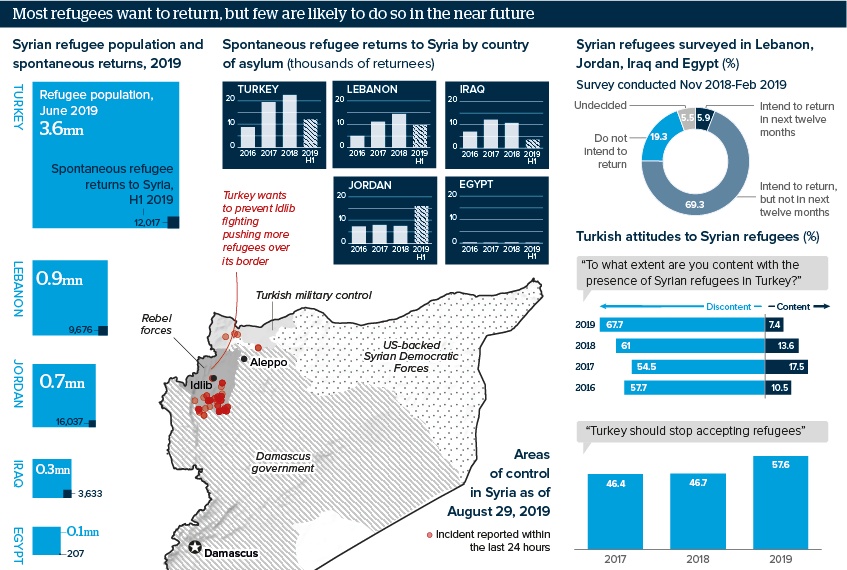Pressure over Syrian refugees will grow in host states
Hostility towards refugees is rising in key host countries, but the chances of substantial voluntary returns are slim
Source: UNHCR; Kadir Has University; liveuamap.com
Outlook
Syria’s neighbours host the vast majority of refugees fleeing the civil war; most have been abroad for years.
The conflict has now turned decisively in President Bashar al-Assad’s favour, with fighting now limited to only a small area around Idlib. Nonetheless, the pace of refugee returns is extremely slow relative to their total number.
Most wish eventually to return, but worry that economic opportunities or housing are lacking, and fear reprisals and continued insecurity.
Meanwhile, popular anger is mounting over Syrians’ continued presence in key host countries such as Turkey and Lebanon. Both have seen rising violence against refugees in recent months and an increasingly hostile attitude from the authorities.
Impacts
- Rising unemployment in Turkey will accentuate resentment towards Syrians.
- Host countries will increasingly look for ways to encourage refugees to leave.
- A new wave of Syrians fleeing a government offensive in Idlib would pose even greater challenges for Turkey.
See also
- More Turks could lose jobs as COVID-19 plays out - Aug 24, 2020
- Long-term refugee problems may mould the Middle East - Dec 19, 2019
- Turkish invasion of north-east Syria is a risky gambit - Oct 11, 2019
- Turkey may narrow its aims in protecting Syria’s Idlib - Sep 10, 2019
- Turkey-US talks over Syrian ‘safe zone’ will drag on - Sep 6, 2019
- Syrian reconstruction plans may block refugee return - Jul 6, 2018
- More graphic analysis
